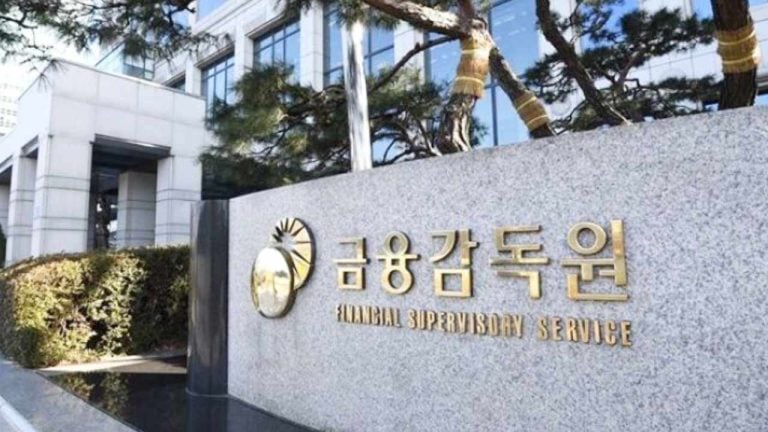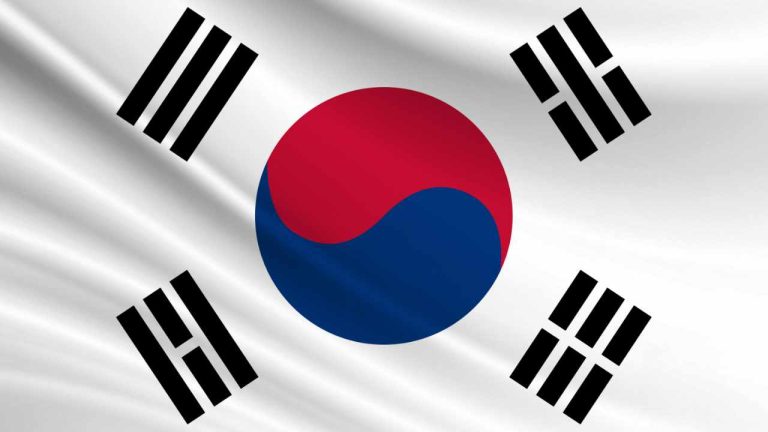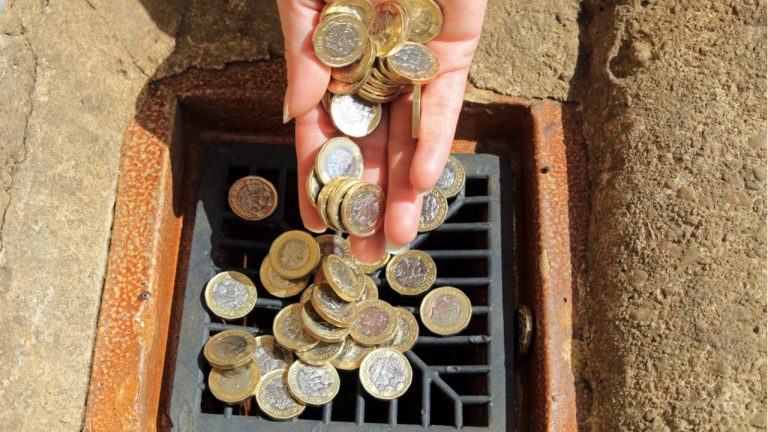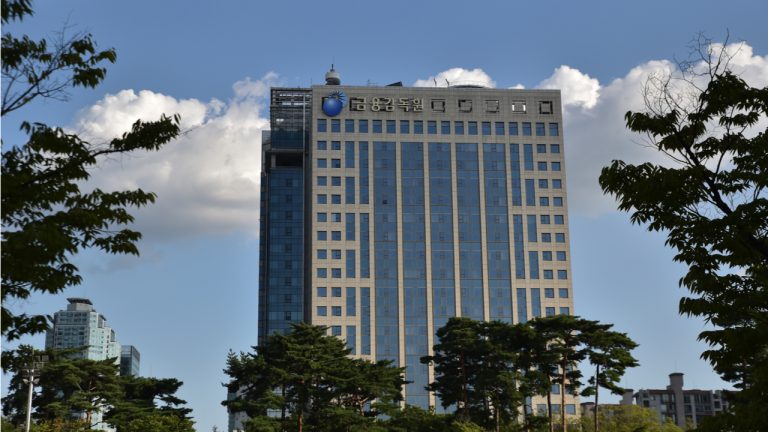 South Korea’s Financial Supervisory Service (FSS) will introduce a continuous monitoring system on July 19 to track suspicious cryptocurrency transactions. Developed with local digital asset exchanges, this system aligns with the country’s Virtual Asset User Protection Act, which aims to regulate trade practices and protect investors. Major Korean crypto exchanges, including Upbit, Bithumb, Coinone, Korbit, […]
South Korea’s Financial Supervisory Service (FSS) will introduce a continuous monitoring system on July 19 to track suspicious cryptocurrency transactions. Developed with local digital asset exchanges, this system aligns with the country’s Virtual Asset User Protection Act, which aims to regulate trade practices and protect investors. Major Korean crypto exchanges, including Upbit, Bithumb, Coinone, Korbit, […]

Unlike their U.S. counterparts, Korea’s FSC and FSS have been cautious about allowing crypto trading on traditional securities markets.
Korean regulators are under mounting pressure to approve cryptocurrency exchange-traded funds (ETFs) following the recent approval of spot Ethereum ETFs by the United States Securities and Exchange Commission (SEC).
According to local media, the SEC’s decision regarding Ethereum is expected to exert pressure on Seoul’s financial regulators to reconsider their stance on digital assets.
The SEC greenlighted the creation of ETFs for Ethereum, the world’s second-largest cryptocurrency, on May 24, 2024, following its earlier approval of Bitcoin ETFs in January 2024.
 South Korea’s financial regulator is developing new tools to regularly monitor crypto risks. The regulator warned that while the impact of the crypto market on the traditional financial system is still low, the risks posed by crypto to the country’s financial stability could increase sharply in the future. Korean Regulator Developing Crypto Monitoring Tools South […]
South Korea’s financial regulator is developing new tools to regularly monitor crypto risks. The regulator warned that while the impact of the crypto market on the traditional financial system is still low, the risks posed by crypto to the country’s financial stability could increase sharply in the future. Korean Regulator Developing Crypto Monitoring Tools South […] The South Korean financial intelligence unit is taking action against 16 foreign cryptocurrency exchanges for operating illegally in the country. “For illegal business activities of unregistered entities, maximum of 5 years of imprisonment or up to KRW 50 million of fines can be imposed,” the regulator said. 16 Foreign Crypto Exchanges Flagged by South Korean […]
The South Korean financial intelligence unit is taking action against 16 foreign cryptocurrency exchanges for operating illegally in the country. “For illegal business activities of unregistered entities, maximum of 5 years of imprisonment or up to KRW 50 million of fines can be imposed,” the regulator said. 16 Foreign Crypto Exchanges Flagged by South Korean […]
South Korean financial regulators are looking into the massive amount of foreign remittances of cash that came from crypto exchanges.
South Korean banks are being investigated for their role in facilitating $6.5 billion in suspicious overseas remittances which have been tied to companies arbitraging cryptocurrency.
According to an Aug. 15 report from Asia Times, the Financial Supervisory Service (FSS) ordered an investigation into South Korean banks last month after identifying a significant amount of overseas remittance transactions at the end of June.
The investigation found that a majority of the $6.5 billion remitted overseas between Jan 2021 and Jun 2022 came from crypto exchange accounts before being sent out of the country, suggesting some Korean companies are exploiting the "Kimchi premium (kimp)."
The Kimchi premium is the gap in cryptocurrency prices in South Korean exchanges compared to foreign exchanges. Investors buy crypto from foreign exchanges and sell them on local Korean exchanges for a profit.
Regulators have been concerned about Kimchi premium trading as it encourages capital flight from the country.
Currently, the kimchi premium sits at a modest +3.37% but was above +20% as early as last April according to market tracker CryptoQuant.
Reports from Shinhan Bank and Woori Bank found that most of the money remitted was first transferred out of domestic crypto exchanges to various corporate accounts of Korean companies.
These large remittances have raised red flags that investors are using huge sums of money to exploit the Kimchi premium, according to an Aug. 15 report from local news outlet Asia Times.
There are also suspicions that the funds remitted are being used for money laundering, according to the KBS news outlet on Aug. 14, with some employees from the unnamed companies that performed the remittances having been arrested.
The total amount sent overseas was more than double what the FSS had expected to find when it ordered banks to look into the matter. Asia Times reported that the FSS is now expected to conduct additional on-site investigations of domestic banks, which could uncover more funds that have been remitted.
Related: South Korea's financial watchdog wants to 'quickly' review crypto legislation: Report
The FSS is now expected to issue sanctions toward Shinhan and Woori for allowing the greatest amount of remittances. Asia Times wrote that Lee Bok-Hyeon, head of the FSS said "We are taking the foreign exchange transaction seriously, and sanctions are inevitable."
On-site investigations are ongoing at Shinhan and Woori but will be completed on Aug. 19.

Korean exchanges will soon be required to list tokens based on the same guidelines to ensure compliance with local regulations, and make emergency decisions together to prevent another Terra fiasco.
Korea's leading exchanges have agreed to form a new emergency system that will spring into action within 24 hours should another Terra-style collapse threaten to come to pass.
Under the new system, exchanges will convene to respond to sudden adverse market effects, such as what happened with Terra in May.
The agreement came after five of the country’s largest crypto exchanges, Upbit, Bithumb, Coinone, Korbit, and Gopax attended a session at the National Assembly, South Korea’s legislature to address market fairness on June 13, according to a report from local news outlet Daily Sports.
Exchange leaders, members of National Assembly, and Financial Supervisory Services (FSS) Chairman Lee Bok-hyeon discussed aspects of a new code of conduct exchanges will voluntarily adhere to in order to protect investors.
The new code will also see the rollout of a warning system in September to signal investors of unusually high-risk virtual assets due to abnormal changes in price or other unusual activity.
In October, listing guidelines will be reviewed and a regular evaluation system will be put in place for all listed tokens.
In May, the collapse of the Terra ecosystem led to tens of billions of dollars in losses and a slew of legal troubles for the founder, Do Kwon, who was confirmed to have evaded about $40 million in taxes through Terraform Labs.
The code aims to systemize token listings and delistings to maximize regulatory compliance and eliminate differences in listing guidelines between each exchange.
Korean market lead from Ledger Jun Hyuk Ahn told Cointelegraph on Thursday that this new direction would bolster investor confidence in crypto exchanges that have been on shaky ground for years. He said “It’s too early to predict exactly what will happen, but it should bring more harmony to the market.”
“More transparency on listing and delisting processes will help bring back the trust from crypto traders that were lost through the Luna incident.”
Domestic exchanges have taken the brunt of the blame for letting investors trade LUNA as it crashed. The number of Korean LUNA holders grew by 180% between May 6 and May 18th from 100,000 to about 280,000. In that time, the Terra USD stablecoin had de-pegged and LUNA fell from over $60 to under $0.01. The new guidelines would aim to prevent exchanges from allowing investors to trade such highly volatile tokens by shutting down trading within 24 hours or delisting them entirely.
LUNA holders in Korea
— Jaemin Park (@jaemin_eth) May 24, 2022
Before the crash: 100k
After the crash: 280k
Koreans are just made different. pic.twitter.com/WltM1RTcny
On the other hand, a local report from News1 on Wednesday stated that exchanges could be losers in the long-run if the guidelines are established. The report opined that the stringent new listing guidelines would hamper the exchanges’ ability to generate revenue from altcoin listings.
“Domestic exchanges often secure profits by listing altcoins that are not listed by competitors because altcoin trading volumes are quite high.”
Korea's exchanges have been sharing the spotlight with the South Korean founder and CEO of Terraform Labs, Do Kwon. Kwon has been under investigation by the feared Financial and Securities Crime Investigation Team, otherwise known as the Grim Reapers of Yeoui-do, for alleged malfeasance and tax evasion.
Related: Appeals court rules Do Kwon, Terraform Labs must heed SEC subpoena served in September
On June 15, the Grim Reapers uncovered documents from the Seoul tax office which they claim confirm Kwon and Terralabs evaded about $40 million in corporate and income taxes in 2021 according to The JoongAng news outlet.
Kwon has denied the allegations of money laundering and tax evasion, including one claiming he has cashed out over $2.7 billion over the past three years from the Terra ecosystem. However, the SEC still wants to see Kwon at the US Court of Appeals on charges of selling unregistered securities through the Mirror Protocol.
 Crypto trading platforms in South Korea are delisting certain digital currencies as they move to comply with stricter rules for the industry. The trading of some high-risk coins has been either halted or completely suspended on several Korean exchanges this week. South Korean Exchanges Wipe Trading Lists of Risky Digital Assets Trying to meet Seoul’s […]
Crypto trading platforms in South Korea are delisting certain digital currencies as they move to comply with stricter rules for the industry. The trading of some high-risk coins has been either halted or completely suspended on several Korean exchanges this week. South Korean Exchanges Wipe Trading Lists of Risky Digital Assets Trying to meet Seoul’s […] The Financial Supervisory Service of South Korea will lead government efforts to oversee the country’s expanding cryptocurrency market. The agency has been tasked with the job after prolonged discussions over which Korean regulator should be responsible for the industry. Financial Supervisory Service Takes Responsibility for Crypto Sector in Korea It took the government months to […]
The Financial Supervisory Service of South Korea will lead government efforts to oversee the country’s expanding cryptocurrency market. The agency has been tasked with the job after prolonged discussions over which Korean regulator should be responsible for the industry. Financial Supervisory Service Takes Responsibility for Crypto Sector in Korea It took the government months to […]